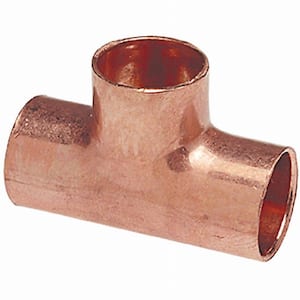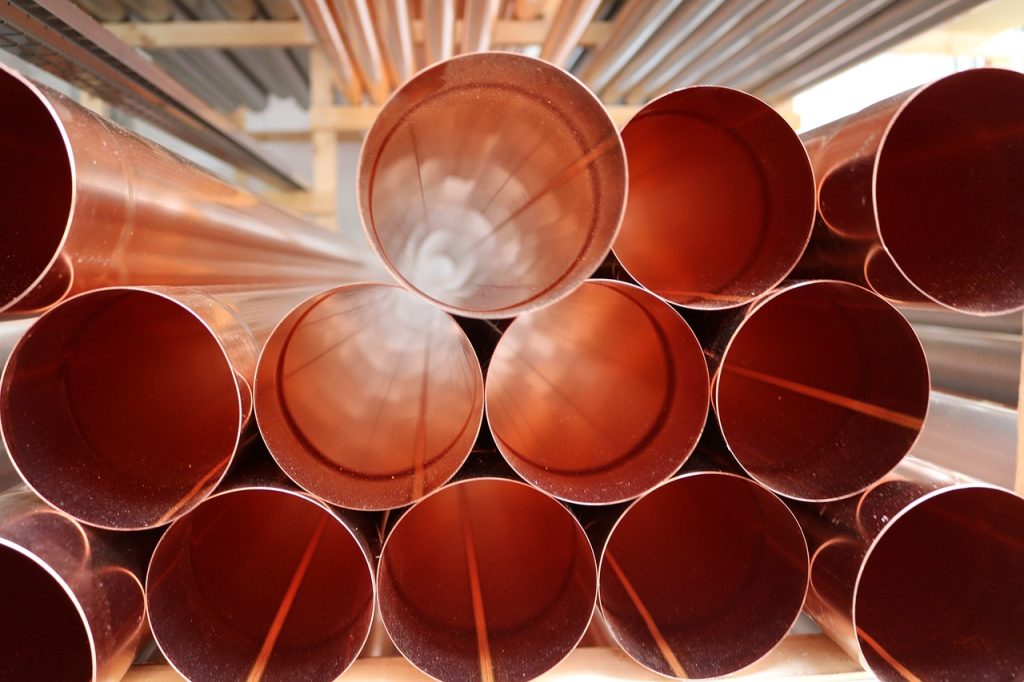From Art to Performance: The Many Applications of Special Copper Products
From Art to Performance: The Many Applications of Special Copper Products
Blog Article
Just How Copper Products Add To Sustainable Practices in Numerous Markets
In renewable energy systems, for instance, copper boosts the performance of solar and wind modern technologies, while its application in building lessens waste with longevity. As sectors seek to take on more sustainable techniques, the role of copper can prove crucial in achieving environmental objectives.
Copper in Renewable Power
Copper plays a vital role in the innovation of renewable resource modern technologies, serving as an essential conductor in numerous applications. Its exceptional electric conductivity and resistance to corrosion make it a perfect material for electrical circuitry, which is crucial in solar panels, wind turbines, and power storage systems. In solar photovoltaic systems, copper is made use of in the affiliations and wiring, making it possible for reliable power conversion from sunshine to electrical energy.
In wind power, copper is integral to the generators and transformers that transform kinetic power right into electrical power, making certain optimal performance and integrity. Moreover, the demand for electric automobiles (EVs) is raising, with copper being a crucial part in batteries, electric motors, and charging framework. The shift to EVs substantially enhances the demand for copper, as these cars generally make use of 4 times more copper than standard interior burning engine cars.
As the globe seeks to alleviate environment change and transition to lasting energy resources, copper's function ends up being significantly crucial. The product not only boosts the effectiveness and sturdiness of renewable resource systems yet additionally sustains the more comprehensive objective of minimizing greenhouse gas discharges and advertising a lasting future.
Eco-Friendly Construction Products
Over the last few years, there has been a remarkable shift towards the fostering of environment-friendly building products in action to growing ecological problems. This change is motivated by the requirement for lasting alternatives that decrease eco-friendly impacts while keeping structural integrity and aesthetic appeal.
Copper, known for its longevity and recyclability, has actually arised as a principal in this field. It can be utilized in roofing, plumbing, and electrical systems, contributing to power effectiveness and reducing waste. Copper's durability means less replacements over time, further boosting its sustainability account.
Additionally, materials such as bamboo, redeemed wood, and recycled steel are obtaining appeal. These alternatives not only offer decreased ecological influence yet likewise advertise source conservation. As constructing codes increasingly highlight sustainability, engineers and building contractors are integrating these materials right into their projects, promoting development in style.
The increasing fostering of environmentally friendly building products mirrors a broader dedication to sustainability in the constructed environment. By focusing on these products, the construction sector can dramatically reduce its carbon impact, line up with regulatory criteria, and support a much healthier environment for future generations. This pattern marks an essential step in the direction of a more lasting future in building.
Copper's Duty in Health care
Recent research studies have highlighted the substantial function of copper in healthcare settings, specifically because of its antimicrobial residential properties. Copper surface areas have actually been shown to reduce the visibility of microorganisms, consisting of germs and infections, by as much as 99.9% within a short duration. This remarkable efficiency makes copper an important material for high-touch surfaces in healthcare facilities, such as doorknobs, bed rails, and IV posts, consequently contributing to enhanced infection control procedures.
Along with its direct antimicrobial impacts, copper also plays a duty in the wider context of medical facility sustainability (Copper Products). By including copper right into medical equipment and home furnishings, health care centers can lower the occurrence of healthcare-associated infections (HAIs), which not just enhances patient results however likewise decreases the expenses linked with extended health center remains and extra therapies
In addition, copper's sturdiness and recyclability line up with lasting practices, permitting responsible source administration. As health care systems progressively prioritize both patient security and ecological stewardship, the combination of copper items is ending up being much more prevalent. This double benefit emphasizes copper's vital payment to a healthier, much safer, and extra sustainable health care environment.
Sustainability in Transportation

In addition, copper's resilience and deterioration resistance add to the long life of transport framework (Copper Products). In rail systems, for instance, copper elements improve the read dependability and performance of signaling and power systems, crucial for decreasing hold-ups and power consumption. Additionally, copper's duty in renewable resource systems, such as solar and wind, sustains sustainable transport options by providing tidy power for electric transportation options
Investments in copper modern technology not just foster sustainability yet likewise stimulate financial growth and work creation in green fields. As industries make every effort to meet stringent ecological guidelines, the application of copper items in transportation becomes a crucial technique in accomplishing sustainability goals and promoting a cleaner, more reliable future.
Copper and Round Economy
As the world significantly accepts sustainability, the duty of copper in the circular economy ends up being ever more substantial. Copper's inherent residential or commercial properties-- such as its recyclability, toughness, and conductivity-- setting it as an essential material in a resource-efficient economic climate. The circular economic situation aims to lessen waste and take full advantage of resource use through recycling and reusing materials, and copper excels in this respect.
The steel can be reused indefinitely without loss of high quality, making it an optimal prospect for lasting methods throughout different fields, including construction, electronic devices, and renewable resource. By reprocessing and recouping copper from end-of-life items, sectors can dramatically lower the need for virgin materials, thereby decreasing environmental impacts associated with mining and handling.
Additionally, the integration of copper right into circular economic climate frameworks not only conserves sources but likewise cultivates technology. Companies that focus on copper reusing add to a much more lasting supply chain, enhancing their competitiveness while lining up with regulatory demands and customer preferences for ecologically liable items.
Final Thought
To conclude, copper products significantly add to sustainable practices across numerous industries. Their important duty in boosting sustainable power technologies, promoting environment-friendly construction materials, sustaining infection control in health care, promoting sustainable transportation, and symbolizing the concepts of a circular economy underscores the versatility and significance of copper. By incorporating copper right into numerous applications, markets can attain higher effectiveness, lower ecological effect, and straighten with worldwide sustainability objectives, inevitably cultivating a more explanation sustainable future.

Copper's excellent conductivity makes it a favored product in electrical vehicle (EV) systems, boosting power performance and performance. In addition, copper's function in eco-friendly energy systems, such as solar and wind, supports lasting transport solutions by supplying tidy energy for electric transit choices.
Their vital function in enhancing sustainable energy modern technologies, advertising environmentally friendly construction materials, sustaining infection control in health care, assisting in click lasting transport, and personifying the principles of a round economy highlights the adaptability and importance of copper.
Report this page